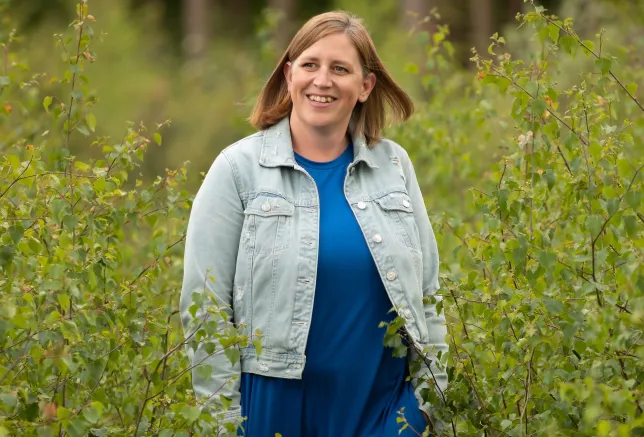
‘No!’ my son firmly tells another child, who asks for the small packet of birthday sweets that was handed to him at the end of the school day.
Watching, I smile with pride.
I wasn’t proud because I wanted to raise an unkind, selfish child – it was because I wanted to raise my child to be confident in having boundaries and asserting them. That meant I was not going to force him to hand over what was his, on demand.
I was teaching him that sharing should be a choice, not an obligation. By doing this, I believe I’m raising a strong child.
From the moment children can grasp a toy, they are encouraged by their well-meaning grownups to share.
Whenever we’re at playdates, toddler groups, nursery and even at the park, I see parents constantly intervening in a child’s playtime, by telling them to ‘share’.
We don’t expect adults to hand over their belongings, just because someone else wants them, but there is an expectation that children should give up their toys or sweets when another child asks or takes.

The problem is, in doing so, it sends the message that children are not allowed to say ‘no’ when someone demands something from them.
As a parent, and someone who has worked with children for 30 years as an early years and parent consultant, I used to believe that teaching children to share was an important lesson to instill – as a foundation of kindness and generosity.
But over the years, I’ve realised that forcing children to share their toys, snacks or belongings, isn’t actually teaching them to be kind, rather it is teaching them to be resentful and can often make a child become the opposite of what we are trying to teach.
I have seen first-hand the upset that making kids share can cause. I’ve witnessed children snatching toys, being aggressive towards other children and getting frustrated when they are waiting their turn.

One two-year-old at toddler group once put all the toy dinosaurs down his trousers, so he didn’t have to share – he then spent his time in the ‘home corner’ slamming children’s fingers in cupboard doors, if they so much as tried to get near them.
These children are becoming selfish in their play and that is definitely not how I want my children, or those in my care, to interact with others. Instead of enforcing sharing, I think it is better to focus on turn-taking, respecting ownership and modelling generosity.
Sharing and turn-taking are not the same thing, and I think the two get easily mixed up. Sharing, when done voluntarily, is an act of generosity. Turn-taking on the other hand, is a way to create fairness when in social situations, where toys, for example, are there for all to play with.
Using the ‘turn-taking’ technique hasn’t always been easy – it certainly takes practice.
For example, when a precious Lego model was deconstructed by another child, causing upset to our son Leo, we decided to start putting anything deemed as ‘special’ away during play dates and agreed beforehand what toys he would be happy to share and take turns with.
Not only did this mean my child wouldn’t feel forced into sharing, but it also helped him see how to be kind and find compromise. It also helped the other child enjoy playing, without the worry and frustration of upsetting my child.

Even out of social situations, while at home, we also don’t enforce sharing. If one of my kids doesn’t want to share their sweets or chocolate, then that is OK, similarly, we don’t always share ours with them, either.
When I am saying ‘no’ to sharing my food or snacks, I’m not being mean or unfair – I am simply putting in a boundary, which my kids see as a normal and healthy thing to have in place.
This has taken a while to implement – at first they would sulk, or tears would be shed because I won’t give up my chocolate. However, staying steadfast in my boundaries during the toddler years has largely paid off and the kids rarely ask these days.
I think this helps them understand consent – something I strongly feel children should learn about.
Learning about consent helps children understand their own boundaries while also acknowledging how to respect those of others. This foundation fosters healthy relationships throughout life and can reduce the likelihood of engaging in or tolerating coercive and harmful behaviours later in life. It also helps kids recognise and report inappropriate actions by others.

Over time, not only do they come to understand that hearing ‘no’ doesn’t mean they are unloved or unimportant, but crucially, they are learning that it is OK to say ‘no’.
True generosity comes about when someone wants to give, not by being forced to and when children learn that sharing is a choice and that they are allowed to say ‘no’, they begin to understand that consent should always be given freely and not out of pressure or obligation.
Taking this approach has led to both my children growing to be kind and generous, while at the same time being able to assert themselves should the situation arise, and I always recommend it to other parents.
It doesn’t mean my children don’t share – there are many times they have happily shared sweets or snacks and of course, their toys, without anyone making them do so. In fact, my daughter, now 12, would often come home from primary school telling me how she and her friends would have all shared each other’s packed lunches.
By allowing children to decide if they would like, or should like, to share, we are not raising selfish kids. We are raising kids who respect personal boundaries and understand what it means to give and receive consent.
What is so wrong with that?
Do you have a story you’d like to share? Get in touch by emailing James.Besanvalle@metro.co.uk.
Share your views in the comments below.
MORE: Child psychologist shares ‘radical’ bedtime tip for parents
MORE: I thought I had a UTI – then my GP’s voice grew serious
MORE: Popular UK holiday resort launches all-inclusive deals for less than £100 a night














